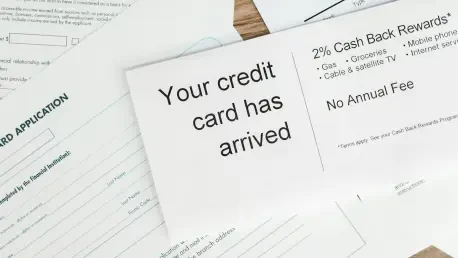In the heart of Hialeah, Florida, a meticulously orchestrated financial scam has recently come to light, exposing a fraud ring that siphoned over a million dollars from unsuspecting financial institutions through an elaborate scheme dubbed the Phantom Auto Loans. This audacious operation, uncovered by the Miami-Dade County Sheriff’s Department’s Organized Crime Bureau, preyed on the trust of banks by fabricating luxury car transactions that never existed, sending shockwaves through South Florida’s banking community and raising urgent questions about vulnerabilities in loan approval systems. As details of this sophisticated crime unfold, the story reveals not just the cunning of the perpetrators but also the pressing need for systemic reform to prevent such staggering losses from happening again.
Unraveling the Phantom Auto Loans Scheme
The Mechanics of Deception
At the core of this fraudulent operation was a calculated strategy that exploited gaps in financial oversight with chilling precision. The perpetrators crafted counterfeit documents, including fake employment records, inflated income proofs, forged vehicle titles, and fabricated sales contracts, to secure hefty bank loans for luxury cars that were either nonexistent or had been shipped overseas. By posing as both buyers and sellers, the suspects created an illusion of legitimate transactions, deceiving lenders into releasing funds for vehicles they would never recover. This intricate web of lies allowed the fraud ring to repeatedly manipulate the system, amassing significant sums while leaving banks with unsecured loans. The audacity of the scheme lay in its attention to detail, with falsified paperwork so convincing that it often passed initial scrutiny, highlighting a dangerous blind spot in the verification processes of some institutions.
Key Players and Their Arrest
The investigation reached a turning point with the arrest of three central figures—Ray Rodríguez, Alexis Fonseca Espinosa, and Hugues Edouard—caught in the act of attempting another fraudulent loan at a Space Coast Credit Union branch in Hialeah. Ray Rodríguez, in particular, emerged as a pivotal orchestrator, running a front company known as EDF Auto Sales / Import and Export Auto Sales, which served as the facade for these illicit dealings. Investigations tied Rodríguez to at least ten fraudulent loans totaling over $647,000 at a single credit union, revealing the depth of his involvement. During the arrest, authorities discovered that a Mercedes Benz supposedly being sold had long been in the Dominican Republic, exposing the extent of the deception. These arrests marked a significant breakthrough, though they are believed to be just the tip of a larger criminal network, with ongoing efforts to identify additional accomplices who may have played a role in this sprawling fraud.
Broader Implications and Future Safeguards
Financial Impact on South Florida Institutions
The financial toll of this scam on South Florida’s banking sector has been staggering, with losses exceeding a million dollars and prompting a reevaluation of trust in loan documentation. Beyond the immediate monetary damage, the incident has eroded confidence in the systems designed to protect lenders from such schemes. Some loans were even obtained under third-party names using nonexistent vehicles or manipulated records, with one instance alone amounting to $81,000 in fraudulent gains. This suggests a broader network of deceit that may involve familial connections or other associates yet to be uncovered. Financial institutions across the region are now on high alert, recognizing patterns of this fraud and bracing for the possibility of similar scams. The ripple effects of these losses underscore the urgent need for banks to strengthen their defenses against increasingly sophisticated financial crimes that exploit systemic weaknesses.
Calls for Stricter Controls and Vigilance
In the aftermath of this fraud, authorities and industry experts have sounded a resounding call for enhanced scrutiny and tighter controls within the loan approval process. The ability of the suspects to repeatedly secure funds through fake identities and phantom vehicles points to critical lapses in verification mechanisms that must be addressed. Banks are being urged to implement more rigorous checks, such as cross-referencing vehicle identification numbers with international databases and conducting thorough background investigations on loan applicants. The consensus among law enforcement is that preventing future losses of this magnitude requires a proactive stance, with financial institutions adopting advanced fraud detection technologies and training staff to spot red flags. As investigations continue, this case serves as a stark reminder of the evolving nature of financial crime and the importance of adapting security measures to stay ahead of cunning perpetrators.
Building a Resilient Financial Future
Looking back, the bust of the Phantom Auto Loans scam in Hialeah exposed a calculated operation that preyed on systemic vulnerabilities through forged documents and fictitious luxury car deals, resulting in monumental financial losses. The arrests of key figures like Ray Rodríguez, Alexis Fonseca Espinosa, and Hugues Edouard represented a crucial step in dismantling this network, though efforts persisted to uncover the full scope of accomplices and fraudulent transactions. Moving forward, financial institutions must prioritize the development of robust safeguards, integrating cutting-edge verification tools and fostering collaboration with law enforcement to detect and deter such schemes. This incident should galvanize the industry to invest in long-term solutions, ensuring that the lessons learned from these staggering losses pave the way for a more secure and resilient banking landscape in the years ahead.









